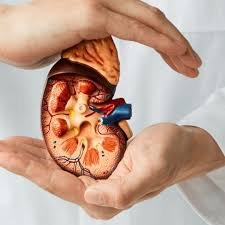Nephrologists are physicians who dedicate their careers to understanding, diagnosing, and treating disorders of the kidneys. Their expertise is especially important in both acute and chronic cases, guiding patients in preserving renal function, preventing complications, and promoting overall well-being.
At Southern Oklahoma Kidney Center, the nephrology team partners with each patient, tracking disease progression and tailoring care plans that span from early-stage kidney impairment to advanced situations such as end-stage renal disease requiring dialysis.
What Does a Nephrologist Do?
Because kidney function influences blood pressure, electrolyte balance, and bone integrity, a nephrologist studies these connections when evaluating a patient. Common activities include:
- Diagnosing kidney disease through lab tests and imaging
- Managing chronic kidney disease (CKD) with staged treatment plans
- Treating glomerular and autoimmune kidney disorders
- Overseeing dialysis treatments, both hemodialysis and peritoneal
- Preparing patients for kidney transplant or alternative therapies
- Managing conditions like hypertension and fluid imbalance
As explained on the Hypertension & Kidney Disease page, controlling high blood pressure-often a driver and result of kidney troubleis another critical task for every nephrologist.
When Should You See a Nephrologist?
Your primary-care provider may suggest a visit to a kidney specialist, or nephrologist, if you show any of the following signs:
Laboratory tests indicate poor kidney function, such as an elevated creatinine level or a low estimated GFR.
- Urinalysis reveals blood, excess protein, or unusual sediment.
- Blood pressure remains high despite treatment.
- You experience multiple episodes of kidney stones.
- Diabetes is present and early markers of kidney damage are detected.
- A persistent anemia points to possible kidney involvement.
The Kidney Disease & Anemia page explains that low red-blood-cell counts often happen with kidney problems and require the coordinated care a nephrologist provides.
Nephrologists and Chronic Kidney Disease
During stage one or two of chronic kidney disease (CKD), specialists commonly focus on diet, medication, and routine tests to slow deterioration. If kidney function drops further, they revise that plan to control symptoms and postpone the start of dialysis.
They also guide patients through advance planning for dialysis or transplant by outlining each choice clearly. You can read on the Kidney Disease & Diabetes page how early diagnosis allows diabetic patients to protect fragile kidneys from severe injury.
Dialysis Management and Beyond
When kidney function declines to a life-threatening level, a nephrology team steps in to oversee dialysis, whether the patient chooses treatments in a clinical setting or prefers to do them at home. Their responsibilities include:
- Choosing between Hemodialysis and Peritoneal Dialysis
- Placing and monitoring access sites
- Adjusting dialysis prescriptions
- Monitoring lab results and symptoms
At SouthernOKC the nephrology staff walks patients through each detail of this process, making sure they understand their options, feel in control, and know they will be supported.
The Role in Kidney Transplant Preparation
The same specialists help decide whether someone qualifies for a new kidney. They treat other medical issues that could block eligibility and they act as the communication link between patients and transplant centers.
As explained in the Preparing for a Kidney Transplant article and carried out day-to-day at SouthernOKC, nephrologists steady health risks, order the right tests, and watch patients after surgery so the transplant has the best shot at lasting.
Building a Long-Term Relationship
Because many kidney diseases are lifelong, patients usually meet their nephrologist every few weeks. Each appointment covers:
- Tracking kidney function through blood and urine tests
- Adjusting medications based on disease stage
- Offering dietary and lifestyle guidance
- Providing emotional support and education
Nephrologists partner with dietitians, nurses, and primary care doctors to give rounded care. Their aim is not just to ease pain but to help every patient enjoy a full, active life.
Nephrologists serve as the foremost specialists for kidney health, guiding patients from initial screening through dialysis and transplant management to ensure optimal organ function and broader medical welfare.
At Southern OKC, our seasoned renal team partners with you at each phase of this journey, offering expertise, education, and compassionate support tailored to your unique condition. If a referral has brought you here or if kidney concerns weigh on your mind, schedule a consultation now and take an informed step toward lasting well-being.




